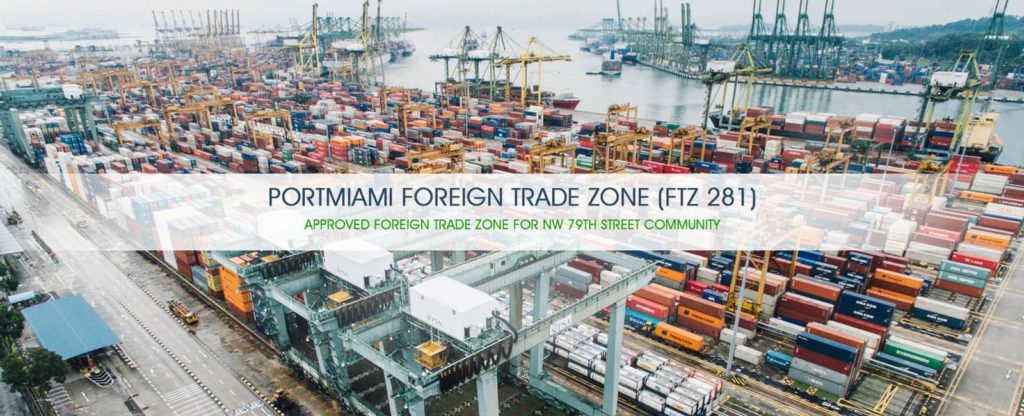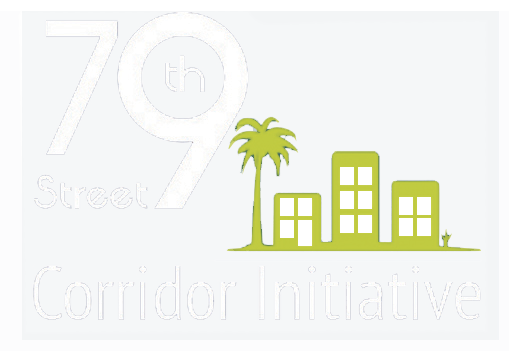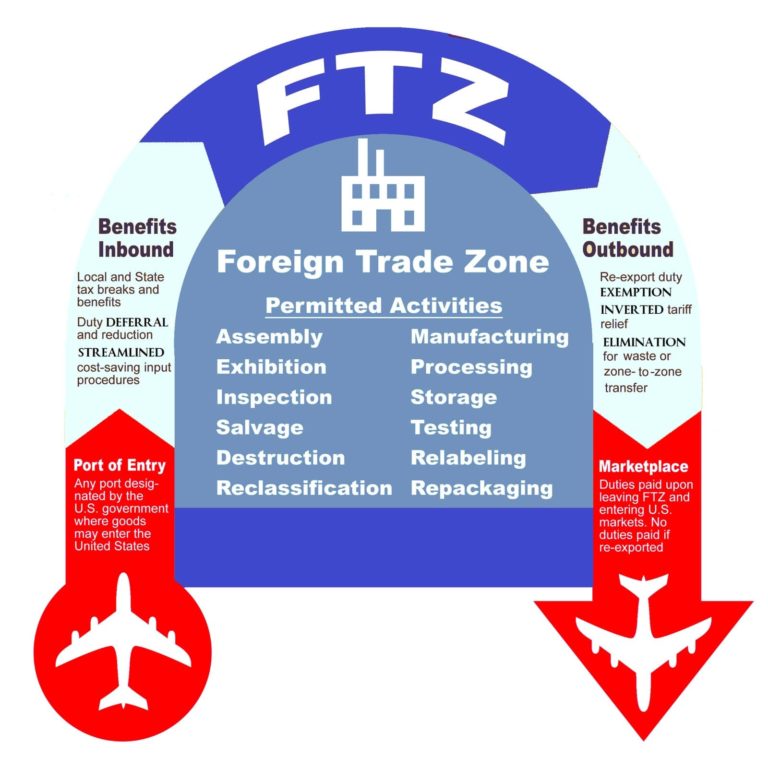What is a Foreign-Trade Zone?
A foreign-trade zone is a designated location in the United States where companies can use special procedures that help encourage U.S. activity and value added – in competition with foreign alternatives – by allowing delayed or reduced duty payments on foreign merchandise, as well as other savings.
A site which has been granted zone status may not be used for zone activity until the site has been separately approved for FTZ activation by local U.S. Customs and Border Protection (CBP) officials, and the zone activity remains under the supervision of CBP. FTZ sites and facilities remain within the jurisdiction of local, state or federal governments or agencies.
Press Release
PortMiami Foreign Trade Zone (FTZ 281) Approves Foreign Trade Zone Designation for the 79th Street Corridor Initiative
The 79th Street Corridor is poised for economic growth and job creation with the new Foreign Trade Zone designation poised to attract international trading companies.
(Miami, FL-December 19, 2016) – As part of a comprehensive plan to transform the 79th Street Corridor district into an economically viable and sustainable community, the Foreign Trade Zone Board and PortMiami Foreign Trade Zone (FTZ 281) announced the approval for the 79th Street Corridor Initiative to operate as an FTZ. The rare designation, which is among the first nationwide for an economically disadvantaged urban area, positions the district as an international hub for trade and logistics and also creates job opportunities for the people in this underserved community. The application also includes Leasa Industries, a local food manufacturer that has operated within the 79th Street district since 1977.
“Designating the 79th Street Corridor as a Foreign Trade Zone stimulates job growth and expands the opportunity for members of this community to participate in global trade, one of Miami-Dade County’s key industries,” shares Ron Butler, Executive Director of the 79th Street Corridor. “Following years of significant economic and social challenges, the Corridor is reemerging with recent commercial and residential developments, and the Foreign Trade Zone designation now helps to strengthen the Corridor’s business infrastructure.”
In addition to welcoming international trading companies, the designation is also advantageous because of the Corridor’s close proximity to PortMiami, Miami International Airport, the Miami River, Downtown Miami, and I-95. It also creates an opportunity to position and develop the Corridor as a hub for innovation and entrepreneurship with the County-initiated Green Tech Corridor being located along the Corridor. Ultimately, small and medium sized businesses in the District will be able to enjoy the benefits of an FTZ, including the reduction or elimination of customs duties.
“Foreign Trade Zones spark economic development and job creation in international trade and commerce for Miami-Dade County,” said Miami-Dade Mayor Carlos Gimenez. “It is an excellent competitive resource that benefits importers and exporters, warehouse operators, manufacturers, and third party logistics providers. We are proud to welcome the 79th Street Corridor Initiative to FTZ 281 PortMiami, and wish them much success.”
“This approval is the first of its kind as the 79th Street Corridor Initiative is a not-for-profit corporation that will be operating the FTZ” stated Gary Goldfarb, Chief Strategy Officer of Interport Consulting and the FTZ Consultant for this project.
“Port Miami’s FTZ 281 had recently created a different tariff for not-for-profit corporations working within community redevelopment agency (CRA) districts to help build businesses in global trade,” says Juan Kuryla, Port Miami Port Director and Grantee for FTZ 281.
The next step in the designation is the development of a business plan by the Foreign Trade Zone and the development of warehouse facilities. The Initiative is spearhead by the 79th Street Coalition for Change, a team of business leaders and community stakeholders working together towards the shared goal of improving the Corridor’s economy.



